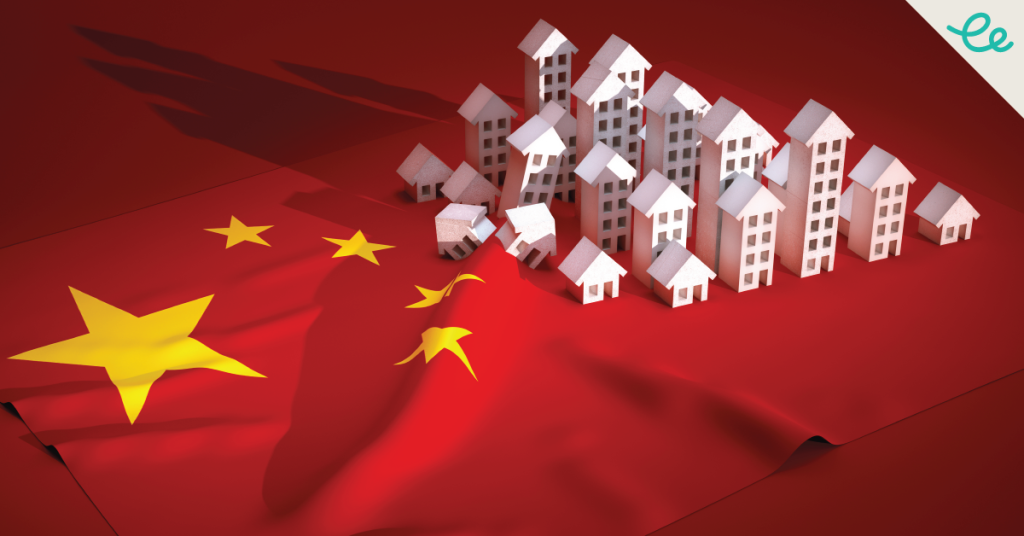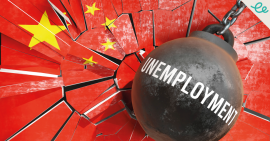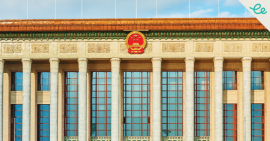Wave of new measures to stabilise Chinese real estate crisis
Is this the real deal, finally offering hope for China’s beleaguered housing market – and the world’s second largest economy? Big decisions announced by the central bank on May 17 capped a series of market-boosting measures in recent weeks. And we like what we see, with reservations.
The wave of changes re-enforces Enodo Economics’ view that this is a turning point for the China property market. Investors had long hoped the government would step in with its own purchases to prop up a sector which at its peak accounted for a fifth of GDP, but now represents the biggest drag on China’s economy. These “heavyweight policies” mark a “significant historic moment” for the sector, proclaimed China Real Estate Business, a newspaper run by the country’s housing ministry.
If you want to learn more about this topic and better understand the potential impact on your world, register for a FREE trial access to our comprehensive research service by clicking the button below.
So, what’s changed? The People’s Bank of China has:
- Abolished the lower limit of mortgage interest rates for purchasing first and second homes nationwide. This effectively allows banks to set their own mortgage rates. First-home-loan rates may soon drop beneath the 3% threshold;
- Cut the minimum down-payment ratio for first-time buyers to 15%, and 25% for second-home buyers. The new levels are China’s lowest-ever down payment requirements;
- Lowered interest rates for housing provident fund loans by 0.25 percentage points
Moreover, the central bank also announced Rmb300bn of funding for government firms. This funding will be used to purchase unsold inventory from property developers to convert into affordable homes. The funds will be distributed to 21 banks. These banks will disburse the funds as low-interest loans to state-owned enterprises chosen by city governments. The bank expects this programme will result in Rmb500bn worth of credit to local SOEs to buy unsold homes and turn them into social housing.
The Communist Party’s top economic official, Vice Premier He Lifeng, voiced support from the top for the buyback plans. He told a national videoconference on the housing sector that municipal governments should buy unsold homes and convert them into affordable social housing. They should also “recover or purchase the idle stockpile of residential land…to help ease pressure on distressed developers.”
Cities make moves
The central bank’s announcements follow cities across the country relaxing housing purchase restrictions. To revive homebuyer demand, several major municipalities have responded to a call by the Party’s Politburo, China’s top decision-making body. At its April 30 meeting, the Politburo told local authorities to “digest existing inventory” while “optimising policies around new housing.”
Officials in Hangzhou vowed on May 9 to remove eight-year-old curbs on residential property purchases. The hottest tier 2 city housing market, Hangzhou will no longer review the qualifications of homebuyers. Xi’an announced similar steps to boost sales. Shenzhen and Wuhan also eased restrictions, including lowering qualifying thresholds for non-local buyers.
These easing measures mark the strongest signal yet that Beijing is turning away from the dictum that “houses are for living in, not for speculation”. They represent genuine progress in China’s attempts to restructure its over-supplied housing market. By re-introducing a true market for high-end housing, the government steps in to turn lower-valued homes into a state-managed resource.
Since November, Enodo Economics has argued that the Chinese government has set out a clear plan to establish a Singapore-style, dual housing system. We believe this is a savvy approach for Beijing. At the high-end of the market, property speculation will be permitted for the affluent urban classes. Private housing will be allowed to function as a store and generator of household wealth for richer citizens.
At the same time, a broader program of affordable housing will be initiated to ensure that those of more modest income are not priced out of city homes. The reforms announced on May 17 show Beijing is speeding up efforts to implement this dual housing market policy.
Big dreams need deeper pockets
There’s no downplaying the huge challenge ahead. The amount of unsold homes is at a record high, and property prices for new and existing homes are declining at a record pace, reported The New York Times. The inventory of unsold homes was equivalent to more than eight billion square feet as of March, according to China’s National Bureau of Statistics.
The newly pledged funding is nowhere near enough to assimilate existing housing stock. Some estimates for saleable housing inventory reach Rmb13.5trn. The Bank of America estimated that the Rmb500bn funding could purchase up to 15% of inventory in tier-2 cities at a deep discount.
Assuming the purchases were made at a 30% discount to market prices, the new funding would allow the government to buy close to 2% of the new homes for sale or in the construction pipeline, estimated Bloomberg economists. “An intervention of this size is not big enough by itself to make a dent in housing supply, but could help lift confidence and stabilise the market,” they wrote.
In January 2023, the central bank introduced a separate Rmb100bn facility. This facility is for eight pilot cities to purchase inventory for subsidised rental housing. But only around Rmb2bn had been drawn down by January 2024, reported Reuters. Local governments, already some $9 trillion in debt, may be reluctant to expand social housing projects which provide low returns.
Policy Reforms and Experimental Approaches
We don’t expect an immediate housing boom. Consumer incomes remain depressed, and sentiment will take time to buy into the government’s signalling of a more relaxed approach. But we do expect the government to fulfil the Politburo’s promise to deepen research into measures to assimilate existing property stock. Further rounds of policy reform are likely throughout 2024.
One interesting experiment is underway in the rural town of Lishui, in eastern Zhejiang province. This month, Lishui is allowing individuals to participate in a land auction, reported The South China Morning Post. The plot is only the size of a football pitch. However, it marks a breakthrough for China’s land system. Municipal authorities exclusively sell to property developers and bar individuals from directly buying urban land for residential development.
China has been fighting a contradictory war on two fronts in its approach to the housing market. But this latest plan – to bifurcate the market into a high-end private market and a low-end, government-controlled reservoir – might well work. The transition away from “houses are not for speculation” is a positive step towards unleashing consumer savings and reviving the moribund economy.
If you want to learn more about this topic, and better understand the potential impact on your world, register for a FREE trial access to our comprehensive research service by clicking the button below.








